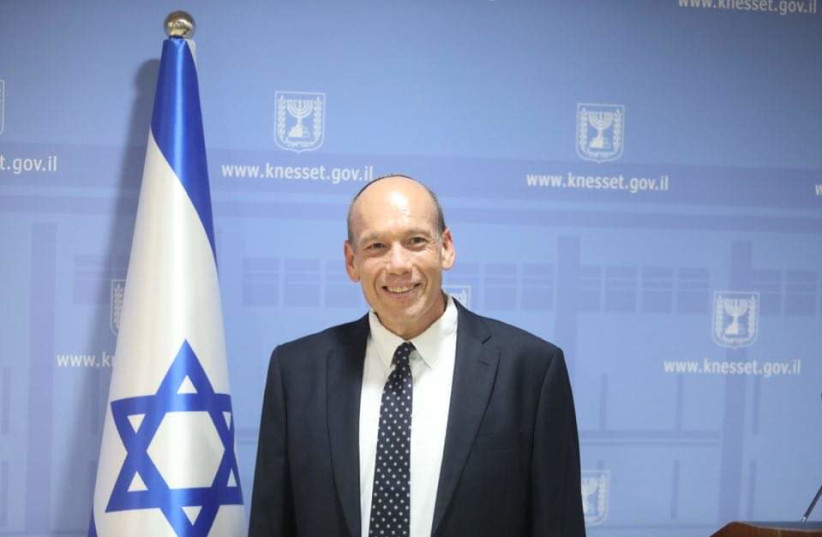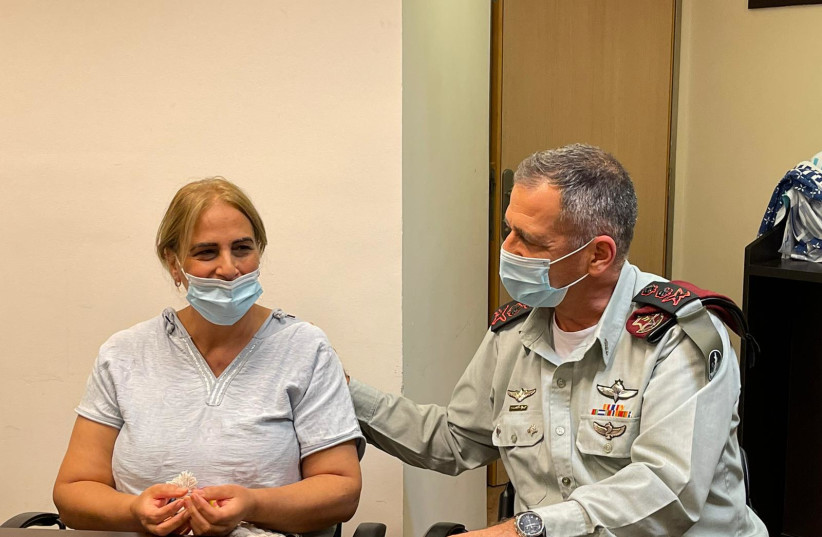The State Comptroller’s Report released on Wednesday has found that despite the Defense Ministry’s work over the past year, disabled IDF veterans are not satisfied with the overhaul to the process to improve medical care available to them.
Last year, the state comptroller found an insufficient amount of medical care available for disabled IDF soldiers, a population that with time is getting older.
They also conducted a survey that found that many disabled veterans were dissatisfied with the department, including the low availability of specialized physicians, long waiting periods before receiving care and the level of service provided by the physicians.
Veterans also noted indifference, disrespect, contempt, insensitivity and impatience by doctors when they were seen.
This year, State Comptroller Matanyahu Englman carried out a follow-up audit in order to reexamine issues in order to monitor if the deficiencies brought up had been corrected.
The follow-up audit revealed that 73% of veterans were still dissatisfied with the services they received, saying they experienced humiliation, lack of trust, and lack of care by those providing services.

“It is the duty of Israel and the Defense Ministry’s Rehabilitation Department to be the backbone of IDF disabled people,” Englman said. “They are the ones who gave their souls and bodies for the security of the state. It is recommended that the Rehabilitation Department conduct a significant internal inspection regarding the attitude of the doctors of the medical committees towards the veterans, their familiarity with the medical file, and their willingness to allow the disabled to present their interests to the committee in full.”
Established in 1990, the Defense Ministry’s Rehabilitation Department had 21 physicians in 2020, despite a 14% increase in the number of disabled IDF veterans and an increase in the number of services required by an aging population.
The follow-up audit found that only one more physician was hired in the past year because, despite an agreement between the Finance Ministry and the department for additional funds and grants for new doctors, the department has yet to fill all necessary positions. The audit recommended that five more doctors be hired.

THE DEFENSE Ministry’s Rehabilitation Department, which is responsible for the treatment and rehabilitation of wounded IDF veterans, has long been criticized for the excessive complication faced by veterans to be recognized as having been injured during their military service.
Until a veteran is recognized, a process which in some cases takes years, they are not eligible for assistance.
According to the audit, while there has been a slight improvement in wait times to see a medical specialist, they noted that the survey was conducted during the coronavirus pandemic, which might have had an effect on those seeking services.
As of November of last year, there were 58,154 disabled IDF veterans recognized by the Defense Ministry’s Rehabilitation Department.
In 2021, a total of 1,716 disabled IDF veterans were recognized by the government, 747 of whom were suffering from post-traumatic stress disorder (PTSD). A total of 6,701 veterans have been recognized as suffering from PTSD by the ministry which says 97% of decisions to recognize veterans with PTSD were made this past year compared to 61% in previous years.
Last April, Defense Ministry Benny Gantz announced the initiation of the “One Soul” reform program for IDF veterans suffering from trauma, after veteran Itzik Saidian set himself on fire in front of the Petah Tikva offices of the Defense Ministry’s rehabilitation division.

Since then, the process to be recognized as an IDF disabled veteran has undergone a comprehensive reform with a proactive approach for anyone recognized as disabled. The reforms include rapid intervention, a shortening of bureaucracy and the building of a dedicated rehabilitation program in all aspects including welfare, medical care and employment.
As part of the recommendations, Englman said the ministry examines its effects on the department’s work processes, on how it affects the tasks required by the department to perform its activities and the scope of its workload, as well as the need to update the department’s manpower standard including the district physicians’ standard.
In response to the report, the Defense Ministry said, “Improving treatment and services for disabled IDF veterans is at the heart of the ‘One Soul’ reform, led by the Ministry of Defense, which is recruiting dozens of welfare and rehabilitation workers and more.”
At the same time, the ministry said it is working to improve medical service committees and will place “special emphasis” on training and workshops for doctors.
“The Ministry of Defense is currently preparing to recruit additional doctors for the Rehabilitation Department and is working with the Finance Ministry to provide attractive salaries that will enable the recruitment of quality doctors in the spirit of ‘One Soul’ [reform].” The ministry said that it is also working to “improve service and to shorten wait times for medical care.”
